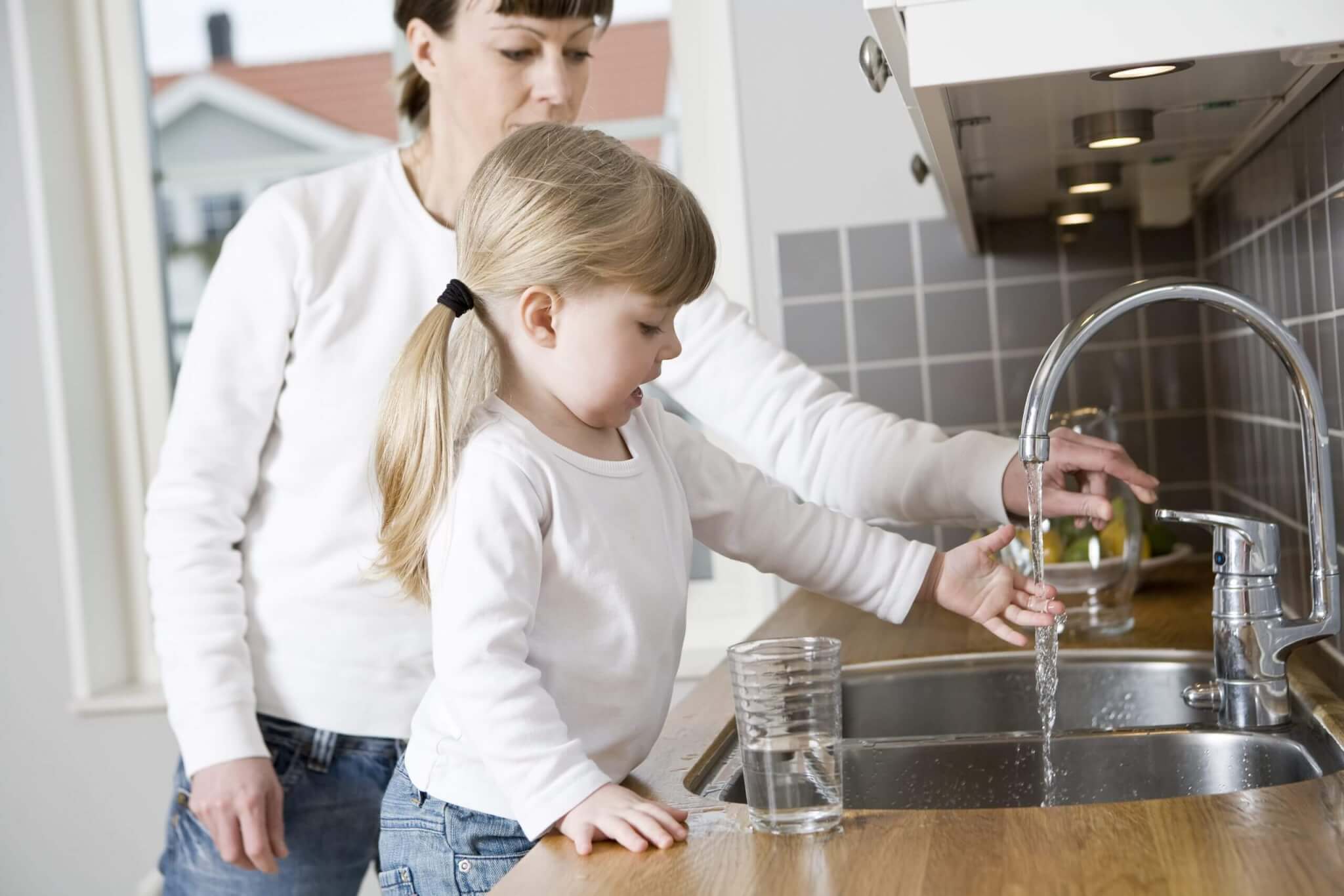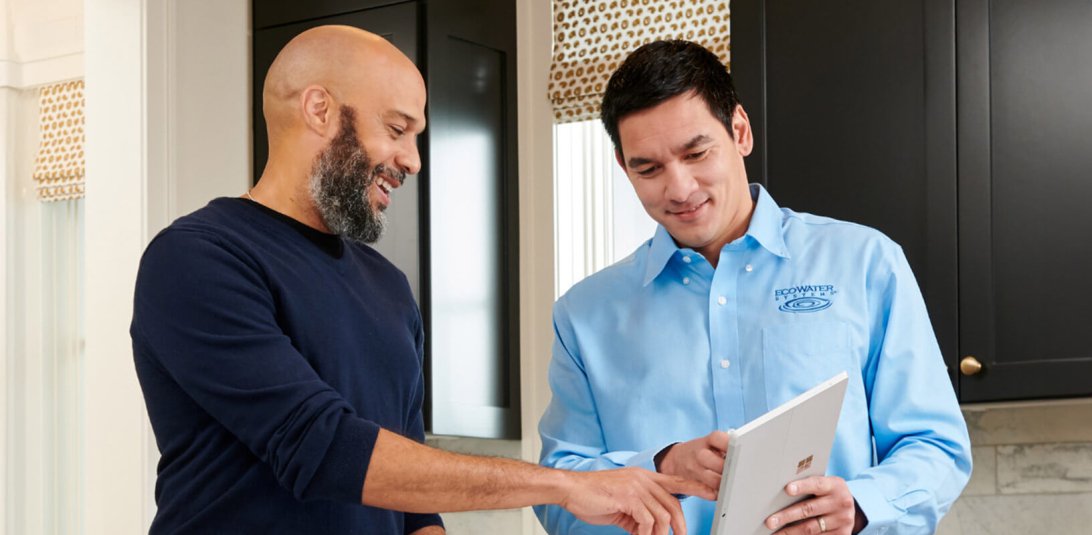Tap water for home use comes from a variety of sources, including lakes, rivers and wells. To protect the water supply and public health, it’s vital to prevent contamination. This means some kind of disinfectant needs to be used to kill potential disease-causing germs, such as norovirus and Salmonella.
Enter chlorine, a powerful and proven disinfectant for many home water supplies. Although its presence is necessary, many homeowners wonder if chlorine is safe to consume.

Is chlorine in your home tap water—and is that bad?
Is there chlorine in tap water? The answer is most likely yes, if you’re on a public water system from a municipality. For more than a century, the most common disinfectant used by municipalities to treat tap water in the United States has been chlorine. When used as a disinfectant, chlorine is an excellent tool in killing viruses, bacteria and parasites. Alternatively, if your water supply comes from a private well, you likely don’t have chlorine in your water.
Note that while chlorine in limited amounts is deemed safe for humans—and for other mammals and birds to consume—reptiles, amphibians and aquatic pets should avoid drinking or absorbing water that has chlorine in it.
The biggest issue typically reported with chlorine-treated water is the taste and odor, which can be unpleasant to drink and cook with.
How much chlorine is in tap water?
How much chlorine is in tap water? Chlorine levels up to 4 milligrams per liter, or 4 parts per million (PPM), are considered safe for human consumption, according to the Centers for Disease Control and Prevention (CDC) and Environmental Protection Agency (EPA).
If chlorine is in your water, which could be inconvenient and unpleasant, what solutions are available to get rid of it?
How to Remove Chlorine From Tap Water
When determining how to remove chlorine from tap water, there are a variety of proven methods that produce results. Boiling water isn’t the most practical way to remove chlorine from tap water but it’ll do in a pinch. UV exposure, while slow, also works. A creative method some use is adding vitamin-C tablets to tap water.
The most efficient and effective method for chlorine reduction is using carbon filtration. Part of what makes carbon filters so effective is they’re good at adsorbing and removing contaminants and other substances from water. Technology in carbon filtration makes it possible to remove chlorine from your tap water with an under-the-sink system or for the entire house with a whole home system.
Find home water filtration systems from EcoPureHome, where you will come across premium solutions from brands like Whirlpool, Brita and EcoPure that can reduce chlorine, sediment and more from your home’s water supply.

Get Answers From an EcoWater Dealer Near You
It’s easy to find an EcoWater dealer near you who can help solve and answer any of your water problems.